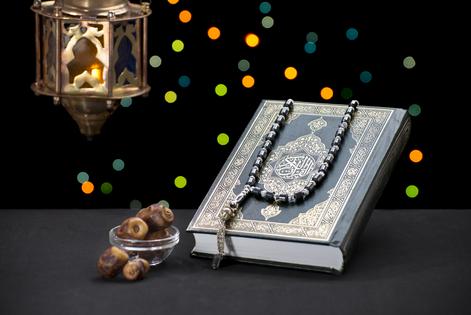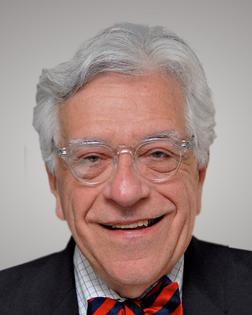The God Squad: Ramadan Mubarak
Our Passover/Easter meditations of the past two weeks may have diverted our spiritual gaze. The glorious and unifying truth is that all three of the great Abrahamic faiths of Judaism, Christianity and Islam are celebrating their formative holidays this springtime, namely Passover, Easter and Ramadan. It is always true that Passover and Easter fall close together because both of them are calculated on the lunar calendar corrected for the seasons and linked together. However, Ramadan is calculated on the lunar calendar uncorrected for the solar cycle. What this means is that Ramadan floats throughout the year, occurring roughly 10 days earlier each year. This gives rise to the wonderful Muslim greeting, “May you celebrate Ramadan in every season of the year.”
This year, Ramadan has floated right through the Passover/Easter time. It begins next week on the evening of Monday, April 12 when the moon is seen over Mecca and concludes one month later on May 12 with the great feast of Id ul-Fitr, which lasts for three days. Ramadan celebrates the first revelation to the prophet Muhammad, peace be upon him, from the angel Gabriel. Ramadan rituals involve eating a pre-dawn meal called suhoor and then fasting from sunrise to sundown of all food and drink, unless one is medically unable to do so. The 30 days of Ramadan each conclude with a post-sundown meal called iftar that begins by eating dates and is usually eaten with friends and family. Gifts to children and family are also given during Ramadan.
Islam is built upon five pillars of belief and practice and fasting, called sawm, is one of the five.
Another pillar is zakat, which is giving charity. Actually, zakat means purification not charity. The month of Ramadan is an especially auspicious time for Muslims to give charitable contributions.
The other three pillars of Islam are the confession of faith called the shahada, which is the single most important declaration of Islamic piety. The shahada has two sentences: “There is no god but God (Allah).” And, “Muhammad is the messenger of God.”
Another pillar of Islam is prayer called salah. Muslims pray five times a day after washing face, hands, and feet, and while facing Mecca. They pray at dawn, noon, afternoon, evening and night. Special congregational prayers are recited in the mosque (masjid) on Friday afternoon.
The fifth pillar of Islam is pilgrimage to Mecca called the hajj. After a Muslim completes the hajj once in their life in the 12th month of the lunar year, the word al-hajj is always used before their name.
Ramadan functions for Muslims like Lent functions for Christians and like the 10 days between Rosh Hashana and Yom Kippur functions for Jews. They are times set apart from ordinary time and dedicated to personal spiritual reflection, atonement for sins, and acts of kindness and charity that make us fit to live with each other. Such times remind us that all we own is just a gift from God and that the primary religious posture after fully comprehending God’s immense blessings to us is that of grateful and humble thankfulness. Everything is a gift from God, including our burdens, and understanding this is the essential difference between people of true piety and people who believe that we are out here all alone.
Ramadan, Passover and Easter all give us different but similar understandings of the nature of sacred time. In ordinary time every second and minute and day and month and year are identical. Sacred times are different. They are times set apart from profane time. They are special times that are intense and engaging and, hopefully, transformative. We cannot live our lives solely in sacred time because that would distract us from the tasks and obligations of daily life. However, we cannot live all our days in secular time because such a life deprives us of humility and hope. The solution to this problem that we need sacred time, but we cannot live in sacred time continually is the Sabbath.
The Sabbath gives us a dose of sacred time every week. It is enough to spiritually sustain us until we come to the great holiday feasts and prayers, but it does not excessively consume us and distract us from our daily lives. Although Muslims gather on Friday for prayers in the mosque, there is no specific Sabbath in Islam. Still, there are holy days of rest and prayer for all the three Abrahamic faiths. On Friday night to Saturday night for Jews; on Sunday for Christians; and on Friday afternoon for Muslims. All three of the great faiths birthed by God’s revelation and God’s intervention into history and nature and our lives celebrate the great and holy belief that God is with us in time and beyond time.
(Send ALL QUESTIONS AND COMMENTS to The God Squad via email at godsquadquestion@aol.com. Rabbi Gellman is the author of several books, including “Religion for Dummies,” co-written with Fr. Tom Hartman.)
©2021 The God Squad. Distributed by Tribune Content Agency, LLC.
(c) 2021 THE GOD SQUAD DISTRIBUTED BY TRIBUNE MEDIA SERVICES, INC.










